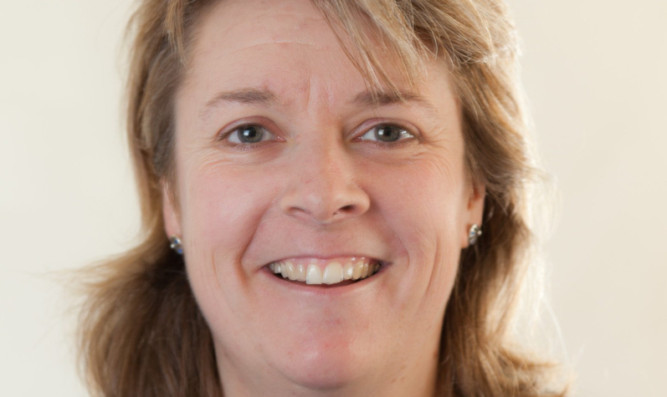A Tayside survivor of child sexual abuse is calling for a greater education of adults so they know how to react when a child speaks up.
Growing up in Wales, Dawn Walton underwent a catalogue of abuse, ranging from physical beatings by her stepmother to sexual abuse by her stepfather.
Dawn, who now works as a cognitive hypnotherapist and lives outside Birkhill, overcame her abusive childhood and has now gone on to write a book.
Nothing Needs to be the Way it’s Always Been is about her experiences and to let people know that no matter how bad your childhood has been or what sort of abuse you suffered, you do not have to be miserable for life.
“It started with tickling,” she said.
“Often if he (my stepfather) wanted to legitimise what he was doing he would tickle me.”
Dawn was around 10 when her stepfather began coming to “say goodnight”.
“I knew this was wrong but I didn’t know what to do about it,” she said.
This was not Dawn’s first experience of abuse. Her stepmother had been hitting her from around the age of six. Trips to visit her grandmother were marred by the drive in her grandfather’s van.
“I never wanted to sit next to him in the van but for some reason my brother made me,” she said.
After years of abuse Dawn eventually confided in her mother’s friend but she did not receive the reaction she wanted.
“She responded by asking me if I realised how serious what I was saying was,” she said.
When the friend finally told Dawn’s mother she “went mad”.
Dawn said: “I sat there in tears as she asked me what I expected her to do.”
She eventually escaped her troubled childhood when she left for university.
She is now calling for a greater education of adults.
“With the increase in profile of sexual abuse brought about by the Jimmy Savile scandal, people are becoming increasingly concerned about how we identify and protect our children,” she said.
“There are concerns about how we create an environment where children feel safe to speak up.”
Dawn said the way her mother and her friend reacted changed the way she felt about herself. She said the most important thing to do if a child confides in you is to believe them.
“Above all else, accept that what they are telling you is true.”
Adults must not judge a child who confides in them and should help them understand it is not their fault, Dawn said.
